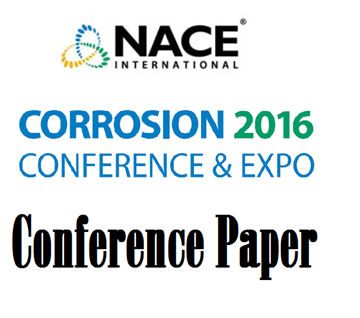Search
10077 Evaluation of Stress Corrosion Cracking Behavior of Steel in Multiple Ethanol Environments
Also Purchased
10073 Understanding the Stress Corrosion Cracking of X-65 Pipeline Steel in Fuel-Grade Ethanol
Product Number:
51300-10073-SG
ISBN:
10073 2010 CP
Publication Date:
2010
$20.00
10075 Effect of Ethanol Chemistry on the SCC Susceptibility of Carbon Steel
Product Number:
51300-10075-SG
ISBN:
10075 2010 CP
Publication Date:
2010
$20.00
51316-7173-Development of Carbon Steel for Pipe Resistant to Stress Corrosion Cracking in Fuel Grade Ethanol
Product Number:
51316-7173-SG
ISBN:
7173 2016 CP
Publication Date:
2016
$20.00




